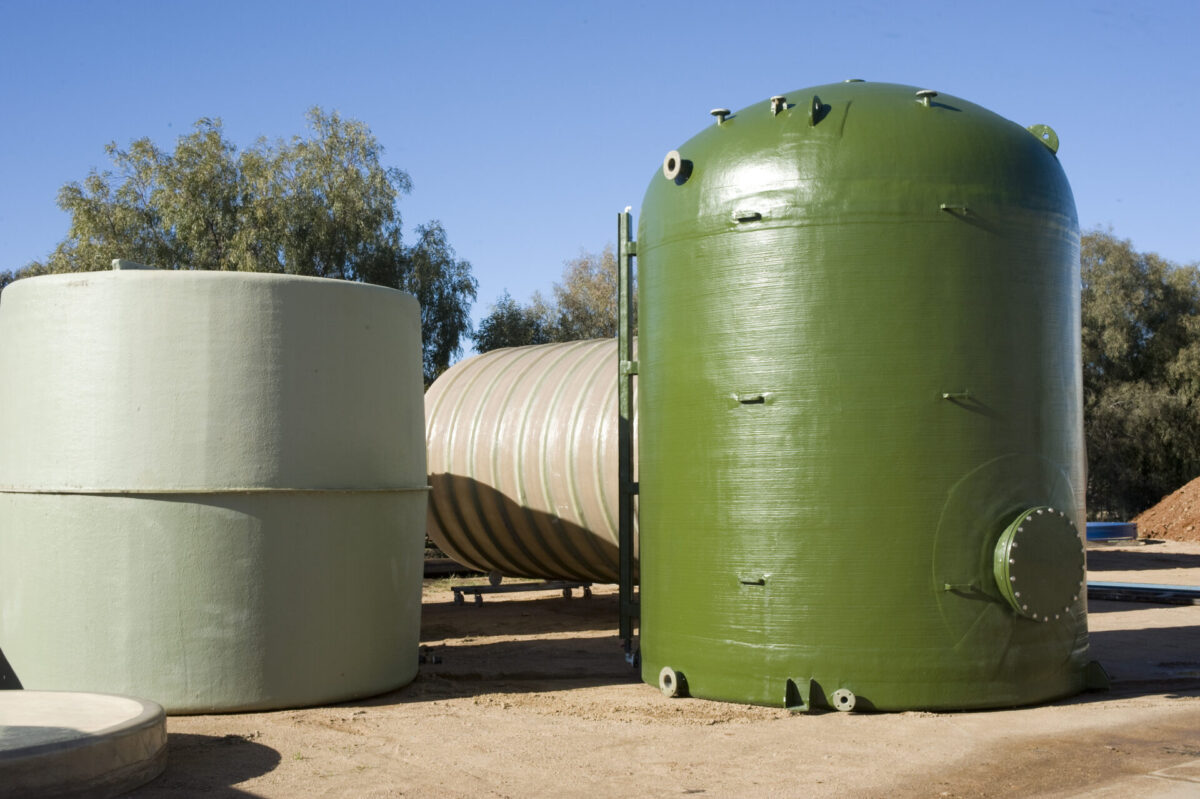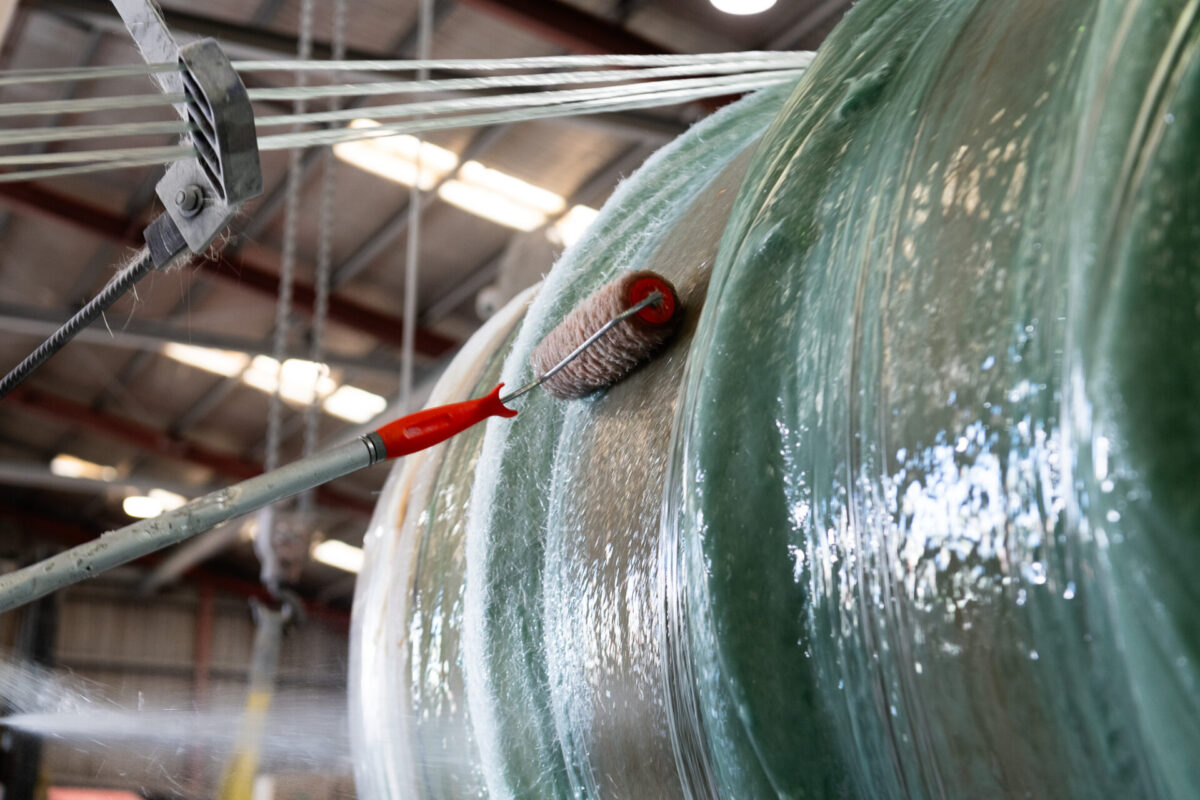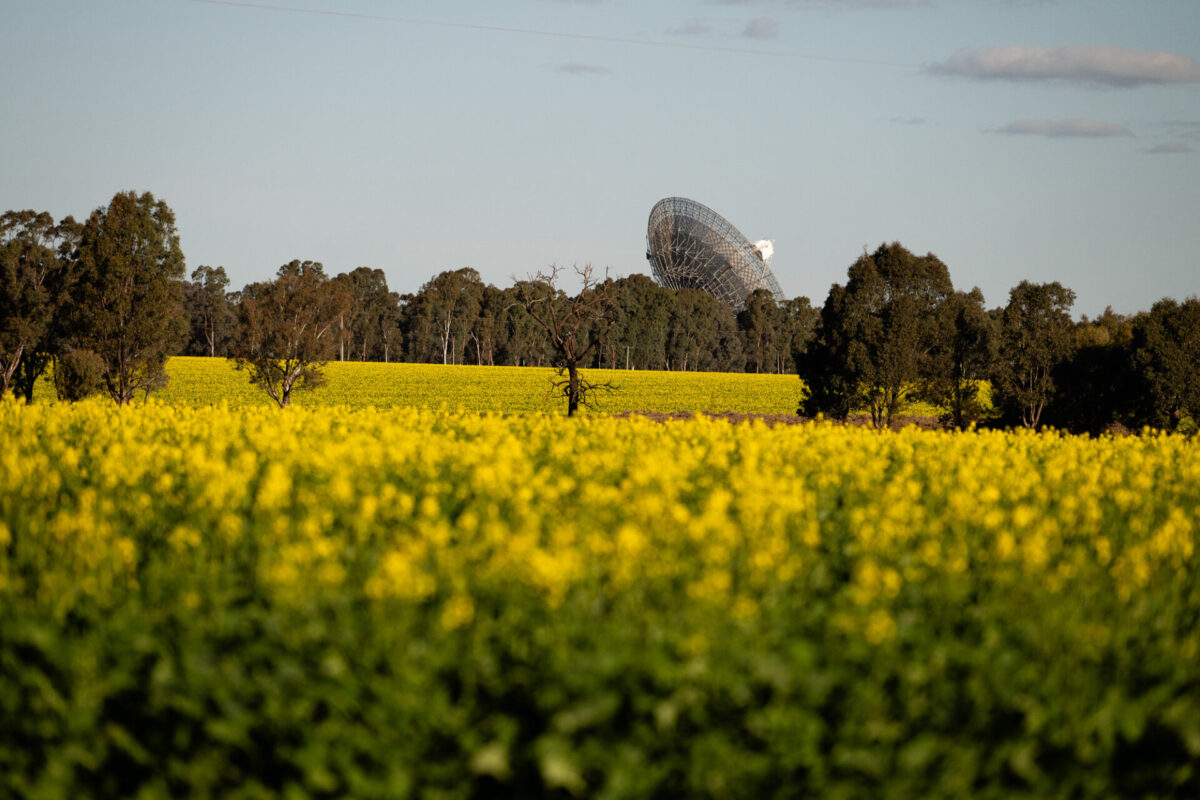Posted on 25/09/2024
Fibreglass-reinforced plastic (FRP) tanks have become a popular choice for storing chemicals and other liquids due to their strength, Chemical resistance, and cost-effectiveness. These tanks are manufactured using a combination of glass fibres and specialised resin systems, resulting in a durable and long-lasting solution for the storage of corrosive materials such as chemicals.
At CSG Composites, our chemical & process tanks have become widely recognised over the past 40 years for their reliability, quality workmanship and cost-effectiveness. Our FRP tanks can store everything from hazardous chemicals to feed and fertiliser. In this blog, we’ll delve into the 5 key advantages of FRP tanks and explore why they are the preferred choice for many industries.

FRP tanks are known for their smooth interior surface, superior durability and for delivering excellent temperature resistant properties. Here are the top 5 advantages of FRP tanks.
1. Easy to Install
FRP tanks are lightweight making them easy to install. Our FRP tanks can be transported to your work site and are simple to install, as the tanks only require the external connection of pipework, some electrical connections and are very lightweight. If you prefer to let a professional handle the installation process, our team at CSG Composites is fully equipped and qualified to carry out onsite installations for your FRP tanks.
2. Resistance to Chemicals
Our FRP tanks are used to store chemicals such as sodium hypochlorite, sodium hydroxide, aluminium sulphate, coagulant and more. Using industry leading resin technologies, we carefully select the most appropriate resin systems for various required applications to ensure our FRP designs meet your requirements and use the most advanced technologies to deliver the highest quality, long-lasting tanks that have been proven to last in the toughest conditions.3. Low Maintenance
As FRP tanks are manufactured with resin, they have smooth walls and are 100% watertight, which prevents contamination, resulting in no unnecessary water pumping or chemical treatment. Having a smooth resin coated interior also reduces scum build-up and is resistant to abrasion from suspended grit, resulting in little cleaning required on your end and only routine maintenance.
4. Corrosion Resistance
A distinct advantage of an FRP tank is its corrosion resistance to harsh corrosive chemicals and conditions. All FRP tanks are manufactured with high surface corrosion resistance, which is achieved by adding a smooth resin-rich layer that reduces friction. Our FRP tanks guarantee resistance to corrosive chemicals found in sewers and wastewater, unlike concrete tanks. Our tanks have been proven to last in the ever-changing environment and are even built to withstand hydraulic pressure.
5. Custom Design
Our FRP tanks can be custom designed to meet your individual requirements. Variances within our design process provide customers with the ability to specify their needs, the tank shape they desire, and its size, all of which are taken into consideration during the engineering and design phase. Our engineers can work with you to meet any tank requirement tailored to suit the needs of your workplace. FRP tanks use innovative technology to manufacture the best high strength tanks in Australia.

Environmental Benefits
FRP tanks are an environmentally friendly option for chemical storage due to their non-toxic and non-reactive properties. Unlike metal tanks, FRP tanks do not leach harmful chemicals into the surrounding environment. This reduces the risk of contamination and pollution. For companies in industries that prioritise environmental sustainability, FRP tanks are a great solution.

FRP Tank Uses & Applications
Tailored to meet specific industry needs, these tanks can be suited to a range of different industries, including:
Industries
- Chemical Processing: Ideal for storing and manufacturing a range of chemicals, including acids, alkalis, and solvents.
- Pharmaceutical Industry: Used for the safe storage of sensitive compounds.
- Food & Beverage Processing: Storing ingredients and finished products securely.
- Sewage & Wastewater Treatment: Handling corrosive substances in treatment plants.
- Oil & Gas Industry: Storing petroleum products, fuels, and other demanding applications.
- Mining: Durable solutions for mining & harsh environments. Read our mining case study for more information.
- Industrial Waste: Safe containment of hazardous materials.
- Renewable Energy: Supporting green energy projects with corrosion-resistant storage.
- Pulp & Paper: Storing chemicals and processing fluids.
- Municipal Market: Applications in public infrastructure projects.
Applications
FRP tanks are versatile and used in various applications, including chemical storage, mixing tanks, and process tanks, such as pressure tanks. They can also be designed as insulated tanks for temperature-sensitive contents and IBC bunds for spill containment. Additionally, FRP tanks can be used as clarifiers, degassing/aeration towers, and scrubbers in treatment processes. Other uses include ducting for ventilation systems and protective covers for sensitive equipment.
CSG Composites Fiberglass Chemical Storage Tanks
There are many advantages to FRP tanks as they are lightweight, high strength and ideal for water treatment and chemical storage. Our production of FRP tanks provides opportunities for custom design tanks and are made with the most innovative technologies. FRP is the superior tank compared to steel and concrete tanks and can handle any environment as they’re 100% watertight and have been proven to have a long service life of at least 20 years.
CSG Composites offers a unique FRP chemical and liquid tank manufacturing service that is second to none. If you require a custom design FRP tanks, we can provide you with the right information and design to meet all of your requirements. Contact us to find out more about our products and services today.
Frequently Asked Questions
What does FRP tank stand for?
FRP stands for Fibreglass Reinforced Plastic. With flexible designs, they offer advantages over steel tanks and other conventional materials, making them suitable for diverse applications with minimal maintenance.
How long do FRP tanks last?
FRP tanks are designed to last 20 to 30 years or more, depending on maintenance and environmental conditions. Their customised resin systems make them highly resistant to corrosion, even in challenging chemical environments. Requiring little upkeep, FRP tanks offer a durable and cost-efficient storage solution for industries needing reliable long-term storage of chemicals, water, or other materials.
What are FRP tanks used for?
FRP tanks (Fibreglass Reinforced Plastic) are primarily used for storing chemicals, water, and corrosive substances in industries like manufacturing and chemical processing. These tanks are designed to withstand harsh environments using the most appropriate resin system to ensure resistance against corrosion and leaks. They’re ideal for applications where durability and low maintenance are required, offering a reliable solution for safely storing a range of materials in Australia.
Are fibreglass tanks safe?
Yes, fibreglass-reinforced plastic (FRP) tanks are safe. These tanks are durable, corrosion-resistant, and flexible, making them suitable for the tough and unpredictable environment in Australia. Unlike steel, FRP tanks are lightweight and strong, with walls designed to handle harsh chemicals.
Industry Success
Client Testimonials
Scott Morris,
Radium
“It’s their knowledge of composites and FRP, the materials, the resins. It’s the experience they bring to the table with knowing the right compounds to put together is what makes the difference”
Jim Kelly,
Arris
“CSG Composites were very good to us as they were able to meet the short lead time and have the tanks ready to go”
